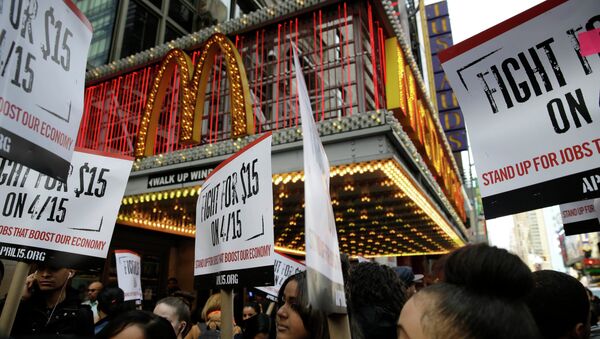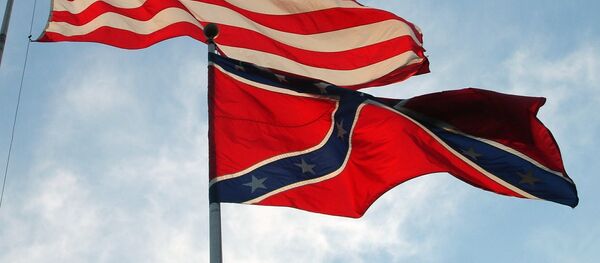“There was a real fight, on the one hand to be paid for every hour you worked, and, on the other, to cap the number of hours that a person had to work,” he said.
The struggle for the eight-hour work day, led by two unions, Knights of Labor and American Federation of Labor, ultimately resulted in a series of protests that changed history, he said.
Authorities responded to the rallies with arrests of protesters and violent military repression, Prashad said, describing the reaction by the authorities as a “major crackdown on American working movement.”
Since then, the movement, as well as the holiday, has been suppressed either tacitly or overtly within the United States, he asserted.
During the McCarthy era, for instance, a different day was chosen to celebrate Labor Day in the US, because of associations between the Workers’ movement and the Socialist movement.
There were also troubles within the working class itself. Soon after its emergence, the movement began splitting into smaller groups. But the major blow to working class unity happened, in the view of Prashad, when white workers, expressing endemic regional racism, distanced themselves from black workers.
“This was a big error, because the moment you divide the working class you weaken it. You cannot strengthen the power and dignity of the entire working class unless you tackle all the issues that erode that dignity, whether it’s sexism, misogyny or racism.”
Now, with Democratic Socialist Bernie Sanders running for president and emergence of movements, including those standing for rights of women, immigrants and people in color, the US faces an upswing in leftist spirit.
“What we need at the moment when the new consciousness is coming is promoting the idea of unity. I think it was a core principle of the first working men’s association,” Prashad said.





